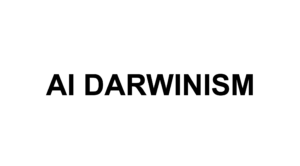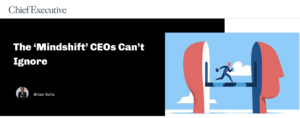
In 2011, the digital landscape underwent a significant shift that will have profound effects on business in 2012.
The challenge is that hardly any business leaders noticed. That’s not their fault however.
Although the impact of technology on business and consumer behavior was widely reported, in-depth reports on what to do next or how this will affect their business specifically were scant at best.
I’m sure you heard it from experts everywhere, “You need a Facebook brand page! Why are you not on Twitter yet? Have you checked-in on Foursquare? Hurry up and get set up on Google+. If you don’t get on social media, you’re going to go out of business!”
And, here you are…still in business. But like any keen business leader or entrepreneur, you’re avidly thinking about your next move. You already know that running the show in a mode of “business as usual” is not only limiting, it’s terribly complacent. But if you are to change, you need to better understand exactly how technology is influencing the behavior of your customers and why.
The truth is that you can create brand pages on every social network you can imagine and you won’t succeed unless you know whom you’re trying to reach and where, what it is they expect and value, and how these channels represent a meaningful opportunity for you and your consumers to connect. You first must answer what’s in it for them and what’s in it for you.
What the social media gurus aren’t telling you is that the landscape for business isn’t changing because of social media, it’s changing because consumer expectations are evolving.
Your customers are empowered through technology where social media becomes only part of the disruption.
Your job in 2012 is to not embrace new technology with arms wide open, but instead understand it and learn which disruptive technologies separate you from existing and potential customers.
What’s unique about “connected” consumers is that they find and share information differently than their more traditional counterparts. They make decisions differently than the everyday consumers you’re used to engaging as well.
But keep in mind, the connected do not displace your traditional customer, they simply expand your opportunity to grow your business.
How you’re marketing, selling, and servicing customers today is largely missing this new breed of consumer, and thus limiting your overall opportunity for growth.
To reach the connected consumer, you must first walk in their footsteps. It takes research, not guesswork. It takes understanding, not skepticism. And it takes a dedicated, not generic or approximated, approach.
Why? Because while your traditional consumer relies on tangible media such as TV, radio, newspapers, direct mail, email, Google search or static websites, the connected consumer is not blindly seeking information, they are reliant on the right information finding them, in the right places.
For example, your new prospective customer lives on their smartphones and tablets. They network with friends, family and the businesses they support in mobile and social networks.
They check in to locations to signal to people nearby that they’re in the neighborhood and to alert businesses that they’re ready to interact live.
Consumers install apps to better make decisions and to broadcast those decisions to their social networks.
What’s more, they research products and services based on the experiences of their peers in real-time, and in turn, share their experiences with everyone else to shape and steer the experiences of others.
In doing so they expand the idea of “audiences” to something far more efficient and expansive — an audience with an audience of audiences.
While it seems foreign or dismissible to those who are not actively embracing or even dependent on disruptive technology, connected consumers are only growing in size, magnitude and influence. Ignoring them is a step toward digital Darwinism.
Today, no company is too big to fail or too small to succeed. Simply knowing your customer is one thing. But, understanding how they make decisions and participating in that process influences behavior while building meaningful relationships.
Connect with me: Twitter | LinkedIn | Facebook | Google+
Order The End of Business as Usual today…
Image credit: Shutterstock
Originally published on Monster.com






Great read, thanks for sharing your insight.
Absolutely spot on Brian and exactly the message that we are communicating at Red Rocket Media.
Michelle
excellent as always! thanks for your consistently on target analysis.
spot on. the information is right on their fingertips. it’s just a matter of what’s the nearest way to access it.
Everything you say always rings true. It sometimes scares the heck out of me, but… that’s evolution for you!
Very good written article. It will be
helpful to anyone who uses it, including yours truly. Keep up the
good work – for sure i will check out more posts.
NIce psot!
Thanks Brian. Always look forward to your informative posts.
“What the social media gurus aren’t telling you is that the landscape for
business isn’t changing because of social media, it’s changing because
consumer expectations are evolving.” So true, Brian. It’s amazing how the “gurus” and businesses think otherwise. So many jump on the bandwagon without putting actual thought or research behind their new investment. Great job as usual! ~Ashley~
Cheers!
“. . . the connected consumer is not blindly seeking information, they are
reliant on the right information finding them, in the right places.” This quote is an important reminder for some and for many others a first time revelation.
Brian how do you think employee relationship management in an organization, that produces a culture that supports a company’s social digital strategies, will influence customer experiences across both traditional and digital platforms?
Great insight Brian, as usual. This connectedness is also changing the way consumers are shopping. Zmags recently set out to profile the connected consumer and his/her shopping preferences and habits. The results highlighted the rise of Facebook and tablet shopping, plus how web-based shopping is favored over apps. The findings can be read in full at
http://www2.zmags.com/resources/connectedconsumer/step1 and there’s also an infographic at
http://www.zmags.com/blog/?p=1080. Would love your input!
Love the video brian, it shows one of the consequences of what i call disruption media
Great read. Really enjoyed the post. Love this line… Your job in 2012 is to not embrace new technology with arms wide open,
but instead understand it and learn which disruptive technologies
separate you from existing and potential customers.
This could be one of my favorite posts yet after reading your work for the last 2 years. Unreal Brian! Living the dream.
Thanks Dave! Appreciate you taking the time!
Great post! This is my favorite part:
What the social media gurus aren’t telling you is that the landscape for business isn’t changing because of social media, it’s changing because consumer expectations are evolving.
Mine to Jasmine! Really enjoyed this post =)
So true.
I simply love this post Brian! I love how your ideology is customer-centric, which should be the same for businesses everywhere.
Understanding them helps you to build better product and customer service relations as well.
I will be sharing this because it simply speaks the truth!
RMSorg
WallStreetBranding
Thank you!
Fantastic post, Brian. And I totally agree, knowing your customer/fan/follower is the single best thing you can do to save businesses. Because otherwise, what’s the point? You’re selling to someone who does not feel you understand them.
Here’s the way I see it, in order: 1) know their interests in a social media context (“my brand” doesn’t count as an interest); 2) know how to use those interests to generate conversations; 3) generate conversations proactively; 4) gather insights from those conversations; 5) act on the data and adapt.
At least it’s my utopia. 🙂
I’m currently applying this to myself. It is not always what you think. We business marketers must act (well not specifically but somehow) and think like the consumers, “what if I will be…” some things like that. This is really a nice post Brian, keep it coming…